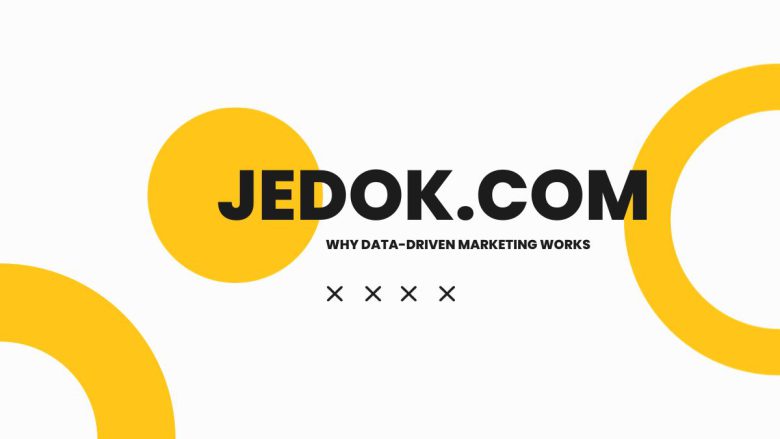
In the ever-evolving world of marketing, strategies and approaches come and go. However, one approach that continues to prove its worth and resilience is data-driven marketing. It’s not just a buzzword; it’s a powerful methodology that works and for good reasons. Data-driven marketing leverages insights derived from data analysis to guide strategies, make informed decisions, and optimize campaigns. In this comprehensive exploration, we will uncover why data-driven marketing works and why it has become a cornerstone of modern marketing strategies.
1. Precise Audience Targeting
At the heart of data-driven marketing is the ability to precisely target the right audience. Traditional marketing approaches often cast a wide net, hoping to catch the attention of potential customers. However, this approach can be inefficient and costly. Data-driven marketing, on the other hand, relies on data analysis to identify specific customer segments based on behaviors, demographics, and preferences. By understanding the audience better, marketers can tailor their messaging and offers, ensuring that marketing efforts reach the most receptive individuals. This precision significantly increases the likelihood of engagement and conversion.
2. Personalization at Scale
Personalization is a key driver of effective marketing, and data-driven marketing excels in this regard. Personalized messages and offers are more relevant and engaging to customers. However, achieving personalization at scale can be a daunting task without the aid of data-driven automation. With data insights and automation tools, businesses can deliver highly personalized content, product recommendations, and offers to individual customers. This personal touch creates a deeper connection and resonates with customers, leading to improved engagement and conversion rates.
3. Data-Backed Decision-Making
Data-driven marketing is grounded in data analysis, which empowers businesses to make informed decisions. Instead of relying on gut feelings or assumptions, marketers use data to understand customer behavior, track campaign performance, and identify areas for improvement. This data-backed decision-making minimizes risks and leads to more effective marketing strategies. When decisions are guided by data insights, marketers can confidently allocate resources and optimize campaigns for better results.
4. Measurable Results and Continuous Improvement
Data-driven marketing is inherently measurable. Marketers can track a wide range of key performance indicators (KPIs) to evaluate campaign effectiveness. Metrics such as click-through rates, conversion rates, and customer acquisition costs provide valuable insights into campaign performance. With this data in hand, marketers can make data-backed decisions and continuously optimize their strategies for better results. The ability to adapt and fine-tune campaigns in real-time based on performance data is a significant driver of success.
5. Customer-Centric Approaches
Today’s consumers expect personalized and relevant interactions with brands. Data-driven marketing aligns with this expectation by focusing on understanding customer behavior and preferences. When businesses use data to tailor their messaging and offers to individual customer needs, they create a more customer-centric approach. Customers feel valued and understood, leading to increased loyalty and higher lifetime value.
6. Competitive Advantage
In a competitive marketplace, businesses that embrace data-driven marketing gain a competitive advantage. They can stay ahead of industry trends, understand customer sentiment, and make strategic moves based on market dynamics. This proactive approach often results in a stronger competitive position and greater market share.
Conclusion
Data-driven marketing is not just a trend; it’s a methodology that works exceptionally well in the modern marketing landscape. By enabling precise audience targeting, personalization at scale, data-backed decision-making, measurable results, customer-centric approaches, and a competitive edge, data-driven marketing delivers tangible benefits.
As businesses continue to recognize the power of data in optimizing marketing efforts, those that embrace data-driven marketing will not only achieve better results but also position themselves for growth and success in a dynamic and ever-changing marketing environment. Data-driven marketing isn’t just a buzzword; it’s the key to making marketing efforts more effective, efficient, and customer-centric.


